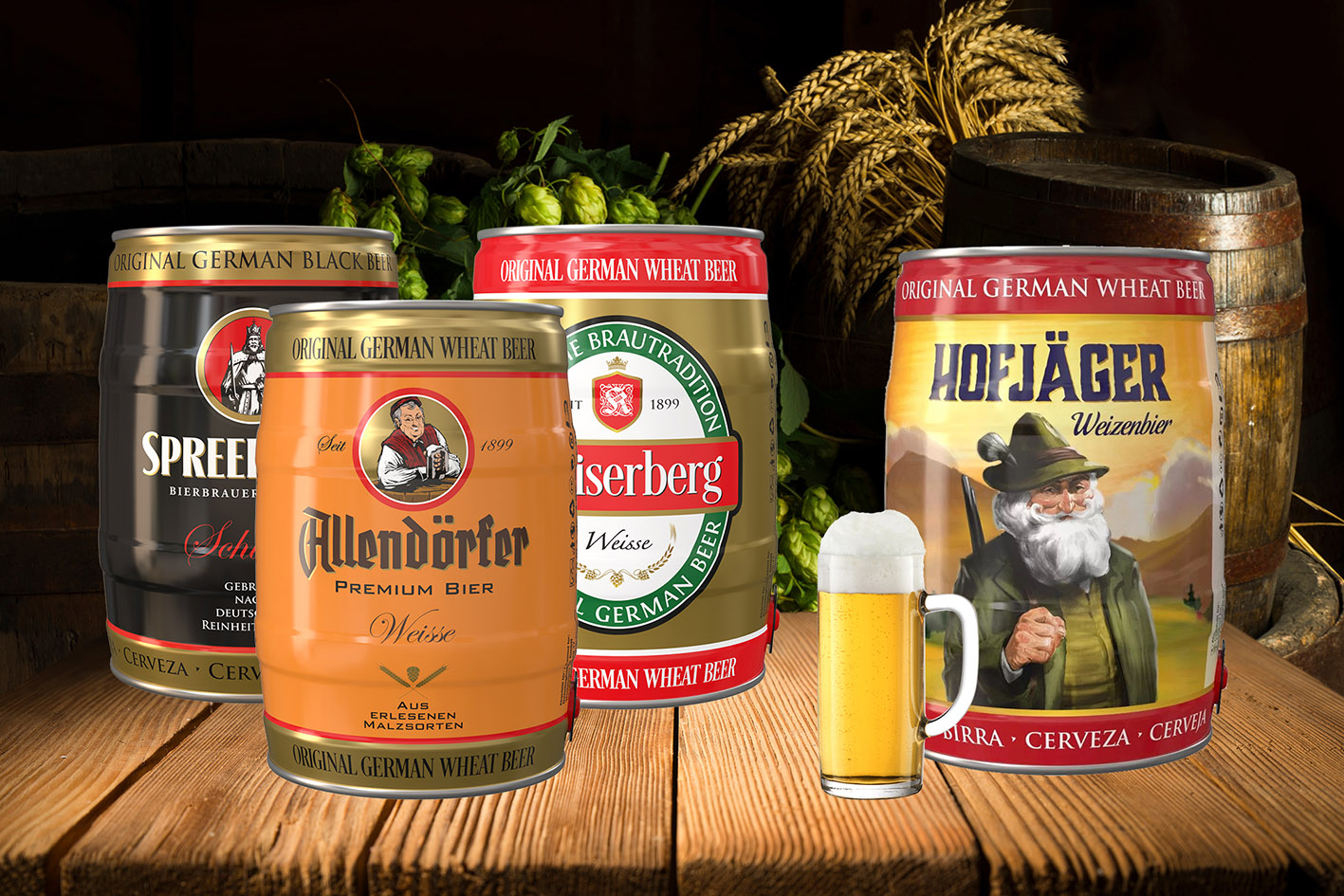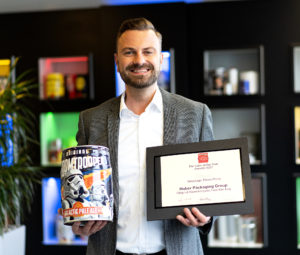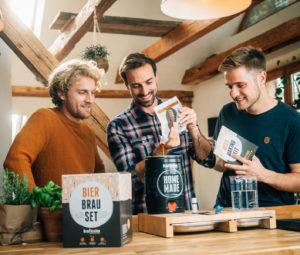
Thomas Kühn, Managing Director of Denninghoffs GmbH
No other beverage is as strongly associated with Germany worldwide as beer. The German Purity Law is part of its fame and makes the amber nectar a true export hit abroad. In 2023, 14.3 million hectoliters were exported. This is not surprising, as German beer stands for tradition, ‘Made in Germany,’ and a piece of the ‘good old Europe’ that is found very attractive on other continents. Thomas Kühn, Managing Director of Denninghoff’s GmbH in Heidelberg, is a professional when it comes to exporting this liquid German cultural asset. He already managed international sales at the Giessen Brewery and realized the potential in this market. When the brewery went bankrupt, he saved the Denninghoff’s brand and dedicated himself solely to the mission of selling German beer worldwide. The deeper he delved into marketing, the more he was preoccupied with the question: What is associated with ‘typically German’ worldwide? We had an in-depth conversation with Thomas Kühn.
Mr. Kühn, you bring German beer abroad under various brands. How many labels are there now, and which are the most important?
Thomas Kühn: By now, we have built up 24 different brands, with varying levels of success abroad. Our flagship brand Denninghoff’s is still the best-seller. Our number two brand is Hofjäger, which is mainly exported to South America. In China and generally in the Asian market, the brand ‘Rittmeister’ does very well.
What is ‘typically German’ about German beer worldwide?
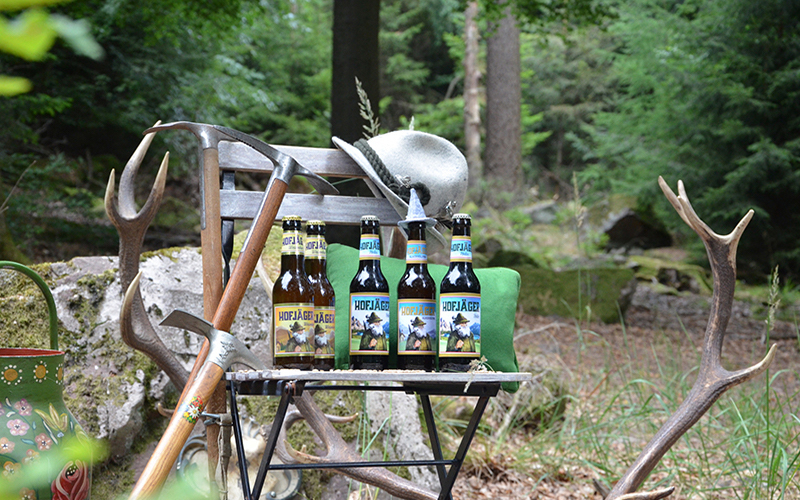
What makes these brands stand out? Why are they so popular abroad, in your experience?
Thomas Kühn: The brands visually reflect exactly what people abroad expect from Germany. For ‘Hofjäger,’ we have depicted forests and mountains with a white-bearded man who could very well be Heidi’s grandfather. It’s the classic image of an alpine farmer that people have in their minds abroad. Of course, this has nothing to do with the real Germany. It’s a cliché. There are always only a few things that people outside of Europe associate with Germany. That’s Bavaria with its nature, Berlin, and the Prussian and military aspects. These are present in people’s minds, and we play with these images in almost all our brands. We have usually created some sort of crest and we always rely on tradition and quality.
Which German beer is the most popular worldwide?
Thomas Kühn: Wheat beer is definitely popular everywhere, closely followed by Pils. However, the latter is considered too bitter in China. There, they prefer Schwarzbier. Even though most of the brands I distribute come from my imagination, I still export 100% German beer. I have it bottled by breweries I trust and distribute the best quality brewed according to the German Purity Law. Every one of my customers knows about the origin of the brands. It’s not a deceit. People want products that are visually appealing and immediately associated with Germany. But of course, the content must taste good, and it does. The inside matches the outside.
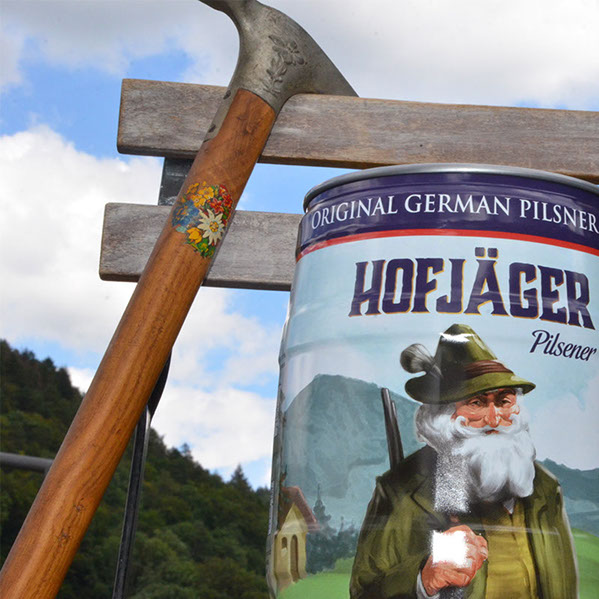
German beer worldwide has enormous potential!
Who are your customers?
Thomas Kühn: These are, for example, large supermarket chains. Whether in Brazil or Mexico – especially on the South American continent, there are supermarket chains with sometimes 400 stores or more. Generally, there are sizes abroad that we can’t even imagine in Europe. In Asia, there are markets that exclusively sell foreign products. German brands are extremely popular there. And especially when they also look German in the classic sense. There is still enormous untapped potential outside Europe. I only serve small pieces of the puzzle.
Do you also create brands exclusively for your customers?
Thomas Kühn: Absolutely! Just recently, a large supermarket chain wanted a beer that comes across as hip and light as the Mexican ‘Corona.’ So, we developed the brand ‘El Fresco.’ Naturally, with a smooth, light beer inside. The customer was happy and has had this product in their range ever since. You have to be flexible and listen to the customer. Then you hit the mark! However, you must of course be careful to use brand names that are free of rights and undisputed. But that’s standard in marketing.
The party keg as an export hit!
You also like to sell 5-liter party kegs abroad, right?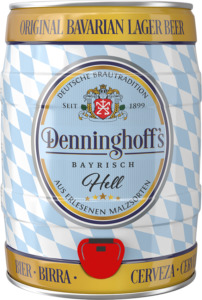
Thomas Kühn: The mini keg is especially popular in South America, particularly in Brazil. I export the party kegs to 8-10 countries, including Korea. Generally, I sell more cans than bottles. The latter are simply heavier and harder to transport. Besides the 5-liter can, the 0.5-liter can is also very popular abroad.
How is the collaboration with Envases?
Thomas Kühn: I have been working with Envases for years and am very satisfied. I am in close contact with Harry Eichholz and receive excellent advice from him – even for more unusual requests.
What makes the party keg stand out in your eyes?
Thomas Kühn: Especially with the party keg, we can showcase the brand very well. Whether it’s mountain idyll, German forest, or traditional crests and seals – the large surface of a mini keg offers plenty of space. And – to a very decisive extent – it is the appearance that sells beer abroad. If the content also matches, nothing stands in the way of success.
Dear Mr. Kühn, thank you very much for the exciting conversation!
